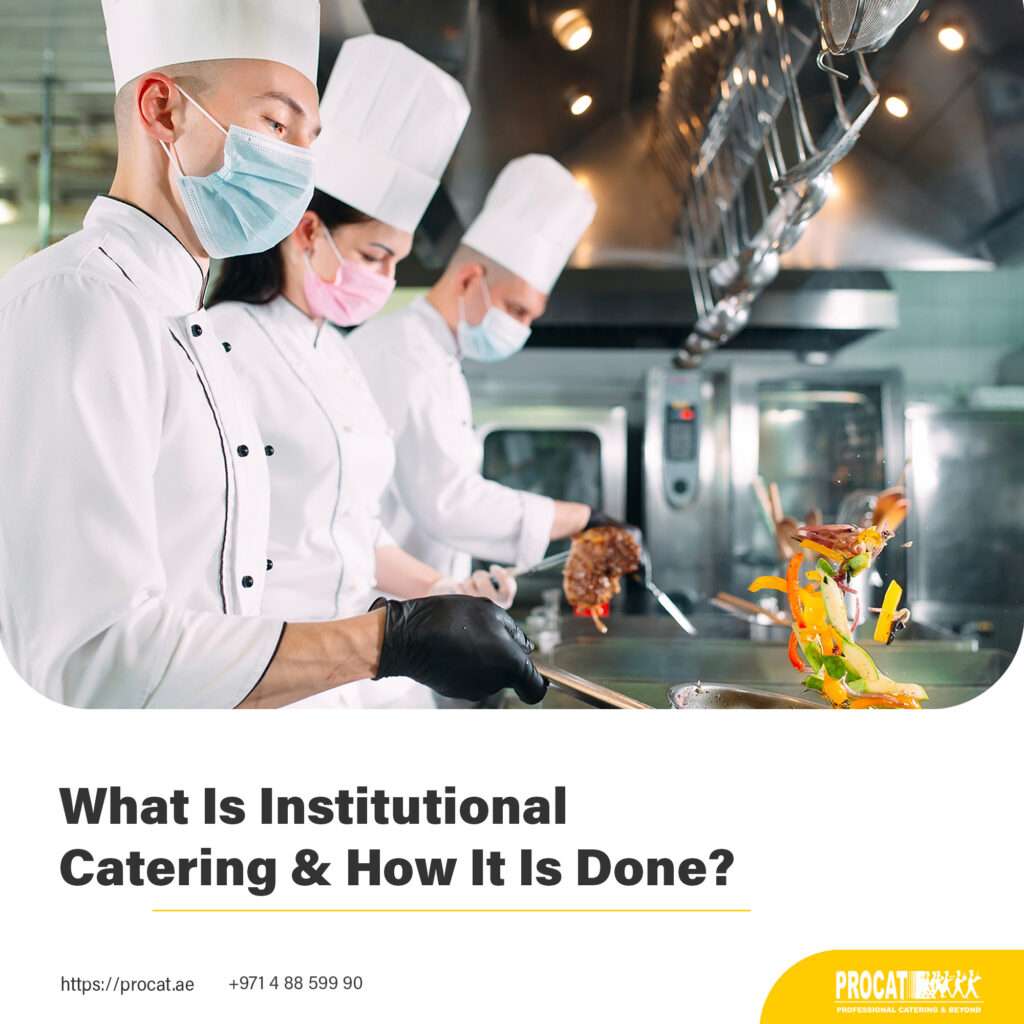
In the modern world, institutional catering is defined as the art of feeding people who are unable to feed themselves. It is in charge of the health and well-being of the next generation. It entails providing services to youth in schools, colleges, and residential universities. These young people range in age from 5 to 25. It has the social responsibility of instilling good eating habits in the nation’s children and assisting in the development of a strong and healthy population. Today, this sector is acknowledged as a significant and influential component of the catering industry.
Institutional catering, like the rest of the public sector, operates within strict budgetary constraints. Due to government spending constraints, caterers must carefully examine all aspects of food cost. However, their ability to cut costs is frequently limited by the imposition of bureaucratic measures designed to monitor spending. For example, most caterers must work with specific suppliers, adhere to strict budgets, and pay nationally negotiated wages. When it comes to budget cuts, the catering service is one of the first to suffer. In some ways, institutional catering differs from hotel catering.
- Education: The quality of school catering is critical for exposing children and teenagers to new tastes. The constraints vary depending on whether the food is produced locally or in a centralized unit, but the issues are the same: understanding children’s tastes and teaching them the importance of a balanced diet.
- Health: When it comes to adapting meals to the needs of each individual, healthcare facilities face numerous challenges: diets, autonomy, and length of stay. Providing a varied, balanced, and delicious diet for each type of patient is a daily and necessary challenge that must be met.
- Business & Industry: Company restaurants must provide balanced, high-quality meals at reasonable prices to their customers. This sector’s challenge is to provide a healthy, comforting, and gourmet break: a maximum of fresh products with a minimum of redundancy, while adapting to new consumption patterns.
- Clubs and top management tables: These establishments are the pinnacle of corporate catering, catering to large groups’ management teams. To meet the needs of an exclusive and demanding clientele, it is critical to change the menu on a regular basis and be able to handle any type of claim. These tables can be used to assess the worth of employees as well as sales representatives.
Procat, the professional catering service provider in UAE, has been catering to several companies and events since 2002. We offer end-to-end bulk catering solutions for labor-intensive companies, corporate functions, events, institutions, and staff accommodations. If you are looking for institutional catering services in Dubai, you should contact them.
